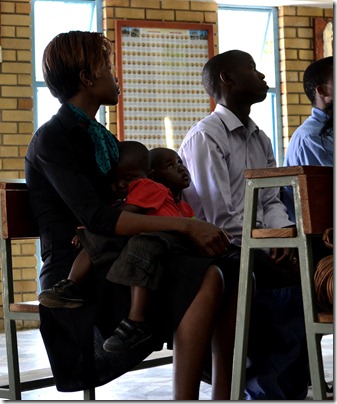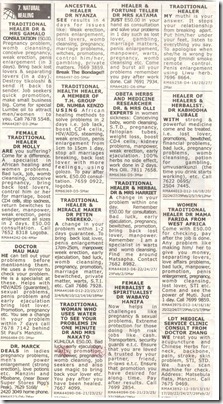Alcohol and the Bible
I am often asked for my opinion/perspective on issues related to alcohol and Christianity because of my experience as a distiller and as a pastor. There has been a lot of talk around this amongst my friends because my hometown of Somerset, KY is about to vote on weather or not to allow alcohol sales in the county. I have communicated my thoughts with many people individually, but figured now is as good a time as ever to post them for others.
Here is a modified version of an email I sent to a friend while discussing the issue:
When discussing alcohol and the Bible, I think the burden of proof lies on those who choose to demonize alcohol. Obviously drunkenness is flat out forbidden throughout scripture, but there is a distinct line between the consumption of alcohol and drunkenness. In fact, if anything, the consumption of alcohol is held in high regard in the Bible. Consider the following:
One of the two central sacraments of Christianity involves the consumption of wine. If God/Jesus thinks drinking alcohol is bad, I doubt he would have set up communion around it. (By the way, it was a Methodist pastor, Rev. Welch, who started the tradition of using grape juice instead of wine and that was only in recent history. He went on to found Welch’s Grape juice).
Paul instructs his protégé Timothy to drink wine instead of just water for his stomach (1 Tim 5:23). We get most of our New Testament "dos and don’ts" from Paul, yet here he encourages his (young) apprentice to consume alcohol.
In the Old Testament (and carrying on into the New Testament), wine is not a symbol of sin, it is a symbol of celebration. In fact, THE central symbol of God’s blessing to his people is the symbol of wine. What do you think the phrase "my cup runneth over" means? It means that God has blessed him so much that he has more wine than he can drink. God shows his favor by giving alcohol (If you need references, I have a slew of them). Again, how can we demonize something that God sees as being a symbol of his love and blessing?
We can bring this imagery back to the New Testament when we look at Jesus’ first miracle: turning water into wine. I have 40+ page paper I wrote on this passage (you can read it here), but I will just give you the cliff notes: This miracle in John chapter two is used to frame the start of Jesus’ ministry. Not only is it significant that Jesus turned water into wine (again, why would he do this if God is opposed to alcohol), but the symbolism is striking. The ministry of Jesus is replacing an oppressive system of rules (the water jars were used for ritualistic washing), with overflowing blessing and provision. Jesus isn’t opposed to wine, he uses it as a symbol of showing how great God’s love and blessing really are. When we demonize alcohol, we miss out on ways in which God is showing his love.
Perhaps my favorite alcohol related passage comes in Deuteronomy 14 when it talks about how you handle the tithe. (By the way, I have major issues with the way the church teaches on tithing. See here and here.) Basically it says you should take 10% of your yield and go to Jerusalem and use it for a celebration of what God has done with your friends and family. But, if you live so far away that you cannot physically bring your tithe to Jerusalem then you should:
"…turn it into money. With the money secure in hand, go to the place that the LORD your God will choose (Jerusalem); spend the money for whatever you wish– oxen, sheep, wine, strong drink, or whatever you desire. And you shall eat there in the presence of the LORD your God, you and your household rejoicing together." -DT 14:25-26
Did you catch that? If you can’t take your physical tithe to Jerusalem then you are supposed to sell it, and use the money to throw a huge party that includes wine and strong drink!
So, when you look at what the bible teaches about alcohol, you find that instead of demonizing it and calling for total abstinence, the bible actually celebrates alcohol and repeatedly uses it as a symbol of God’s blessing.
Now of course, the standard response is that drinking "may cause your brother to stumble" and thus it is better to abstain. I will admit that is a valid point, but only when used consistently. Tea-totalers will often argue that any drinking sets a bad example and may cause others to stumble. Basically, if someone sees you drinking then they will automatically fall off the bandwagon and become a raging alcoholic. I am sorry, but that logic is faulty. In most cases, the only people who "stumble" are the tea-totalers who get all bent out of shape at the thought of a Christian drinking. Of course you should not be taking shots of whiskey in an AA, meeting, but if you are enjoying a wine or beer with friends, I highly doubt that is going to cause anyone to stumble. There are places and times I abstain from drinking, but there is no way you can come up with a biblical argument for total abstention for all people in all circumstances.
I understand there are good reasons to not drink at all, but the problem is, when you insist that approach should apply to everyone, you neglect the good that comes with the risk. Take sex for instance. There are plenty of passages talking about sexual sin, and total abstinence from sex is considered a virtuous option according to Paul. But, if you think that no one should have sex then you miss out on the gift that sexuality in a committed relationship is intended to be. The same is true with wealth. There are plenty of passages talking about greed and living a life of poverty is considered a virtuous option. However, if we demonize wealth then we miss the fact that God often uses wealth to show his blessing (bearing in mind that we are blessed to be a blessing to others).
The same is true with alcohol. It is a virtuous option not to drink, but requiring it puts us in a place where we cannot fully appreciate the blessings of God.
I said before, that logic of causing a brother to stumble must be used consistently. If someone is going to insist on abstaining from alcohol for their brother’s sake then they should never eat a Twinkie in front of a fat person, never drive a nice car in front of someone tempted to covet, never discuss controversial things with someone prone to anger, never have a baby around single people (because a baby requires sex to make that idea might cause a single person to stumble), etc. The list goes on… why should we only pick one example and live rigidly by it while ignoring all the others.
Of course if theological reasoning doesn’t work, you can always remind people that Elijah Craig, the inventor of bourbon, was a Baptist Pastor.
 I simply don’t have the words to express the amount of sadness and grief that instantly swept through the entire area. The mother, Nakiwe, was one of our brightest employees before she took a new job to be closer to her husband in Manzini. The father, Felix, is a police officer, but has worked with Cabrini in the education for years and years, he was apart of life on the mission even before the current sisters were. The grandfather was one of the major leaders in the church and in his chiefdom. Probably a quarter of our staff live within a couple kilometers of where the boys drowned.
I simply don’t have the words to express the amount of sadness and grief that instantly swept through the entire area. The mother, Nakiwe, was one of our brightest employees before she took a new job to be closer to her husband in Manzini. The father, Felix, is a police officer, but has worked with Cabrini in the education for years and years, he was apart of life on the mission even before the current sisters were. The grandfather was one of the major leaders in the church and in his chiefdom. Probably a quarter of our staff live within a couple kilometers of where the boys drowned. [Nakiwe, Sisandza,Tandziso and Felix Mabuza at the Feast of St. Philips]
[Nakiwe, Sisandza,Tandziso and Felix Mabuza at the Feast of St. Philips] 




